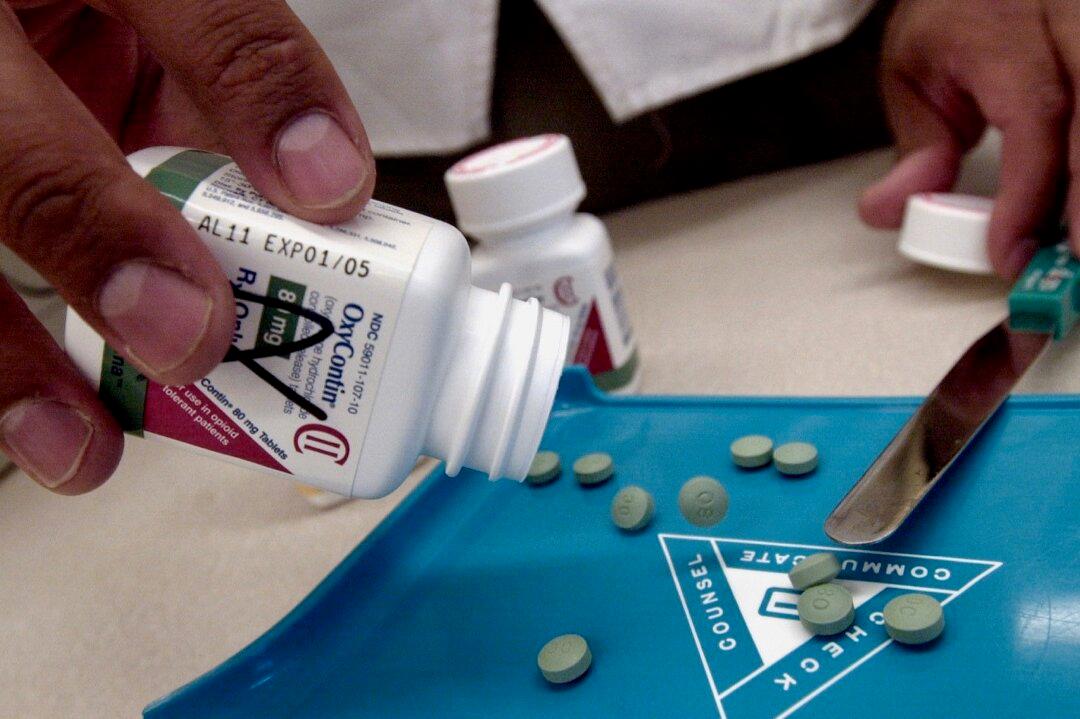Manufacturer of the powerful opioid painkiller OxyContin, Purdue, has said it will stop promoting opioid drugs to doctors.
Purdue has reduced over half its sales staff and will stop sending them out to doctor’s offices to talk about their opioid products. Instead, the remaining sales staff will focus on marketing other medications, Fox News reported.





